On October 21, 2020, Business France Indonesia organized a virtual business workshop where senior executives from Indonesia’s Civil Aviation Ministry of Transportation, together with air traffic management providers, AirNav Indonesia, PT Angkasa Pura I and PT Angkasa Pura II, gave an overview of the impact of the global COVID-19 pandemic on Indonesia’s airports and business resilience plans for the sector.
Airlines around the world are facing crisis from the global collapse in passenger flights. The knock-on effect has compelled a serious rationalization of airport management services in Indonesia. Falling aeronautical revenues and implementation of strict new health and safety protocols are pivoting the sector towards new technologies to adapt their operational practices to the next normal.
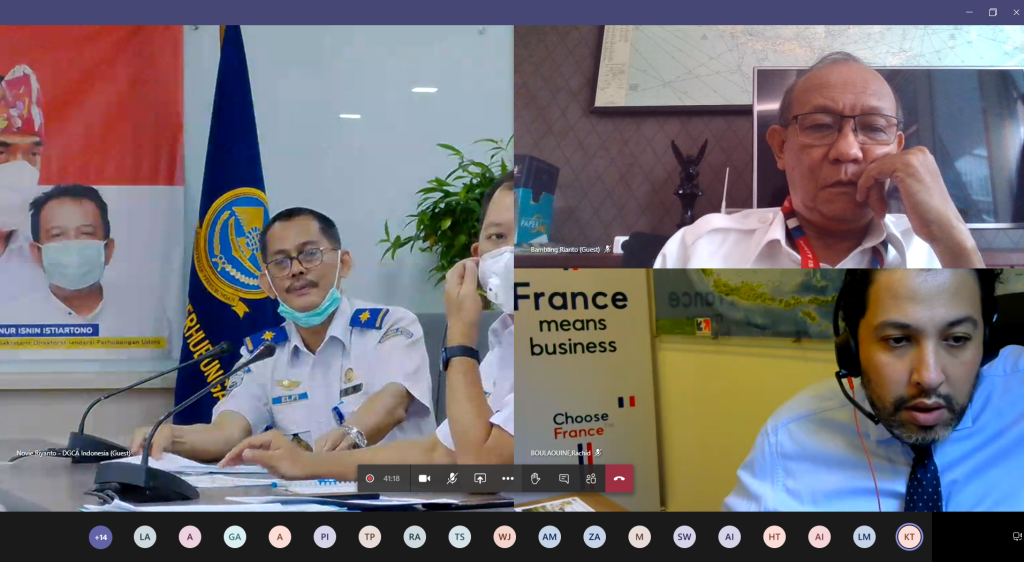
Improving Airport Safety and Security
Airports are amongst the first lines of defence against the risk of imported cases and local community transmission of COVID-19. More than ever before, now is the critical time to escalate surveillance of security measures at airports and make improvements where possible.
Mr. Mohammad Praminto Sukarno, IR., President Director of AirNav Indonesia, spoke on the key areas of focus to improve airport safety in Indonesia:
- Improving cyber-security in all components of the air transportation system to ensure flight and passenger data are accurate and up-to-date at all times.
- Improving command and control of airport traffic and capacity, to better plan for new health screening and testing measures, quarantine and isolation facilities, and crisis management.
- Improving on-ground security measures for safer landing and take-offs of aircraft and swift management of unexpected on-ground occurrences.
Continued investments in airport development
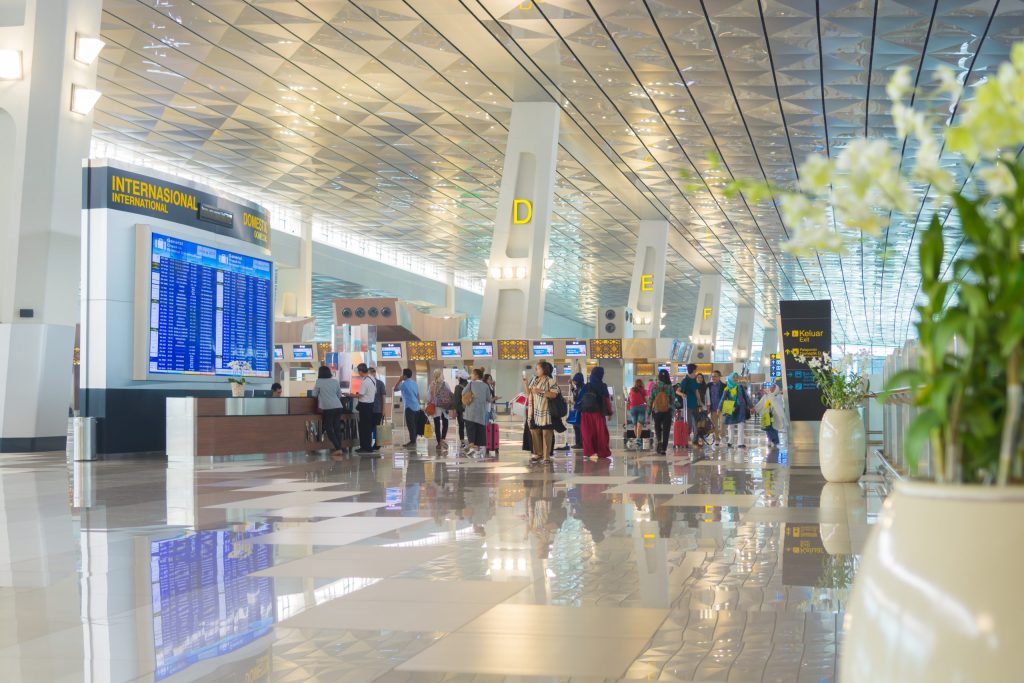
Despite the worldwide aviation downturn, there are still opportunities out there. Domestic traffic in Indonesia is expected to reach pre-crisis levels by early 2023. The air cargo industry is already returning to positive levels. Indonesia will continue to invest in developing the country’s airport infrastructure in the long run.
Mr. Ramdan Pradarma, VP for Business and Asset Development, Airport Development Projects at PT Angkasa Pura I, and Bima Boediman, AVP Business Development at PT Angkasa Pura II, gave an overview of the key airport projects under development:
- New international airports in Yogyakarta in Java, Kalimantan and Sulawesi in Borneo, Jayapura in Papua.
- Strategic partnership opportunity with Lombok International Airport
- Enhancements to Soekarno-Hatta International Airport in Jakarta – building of the new Terminal 4 and Cargo Village.
Meeting the requirements of bilateral “green lane” arrangements
Airports remain a key and resilient infrastructure for Indonesia’s society. Resilience will become a key feature of airport management and will shape how the airport business model evolves to meet the challenges of the next normal.
As countries in Asia Pacific establish “green lane” arrangements and bilateral air travel bubbles, there are key considerations for Indonesian airports as they rationalize operations to remain nimble and responsive to the evolving situation:
- What is the best airport resource plan to pivot airport capacity to priority areas, like air cargo handling?
- What type of logistical changes will be required to implement health and safety measures to protect passengers and airport workers?
As the main point of entry and exit in most countries, airports are critical to managing health crises. Airports also play a key role in following up on COVID-19 positive cases or those considered high risk. Airport operators must ensure that optimal resources are allocated to efficiently manage stringent health and safety measures to meet the requirements of bilateral “green lane” arrangements.
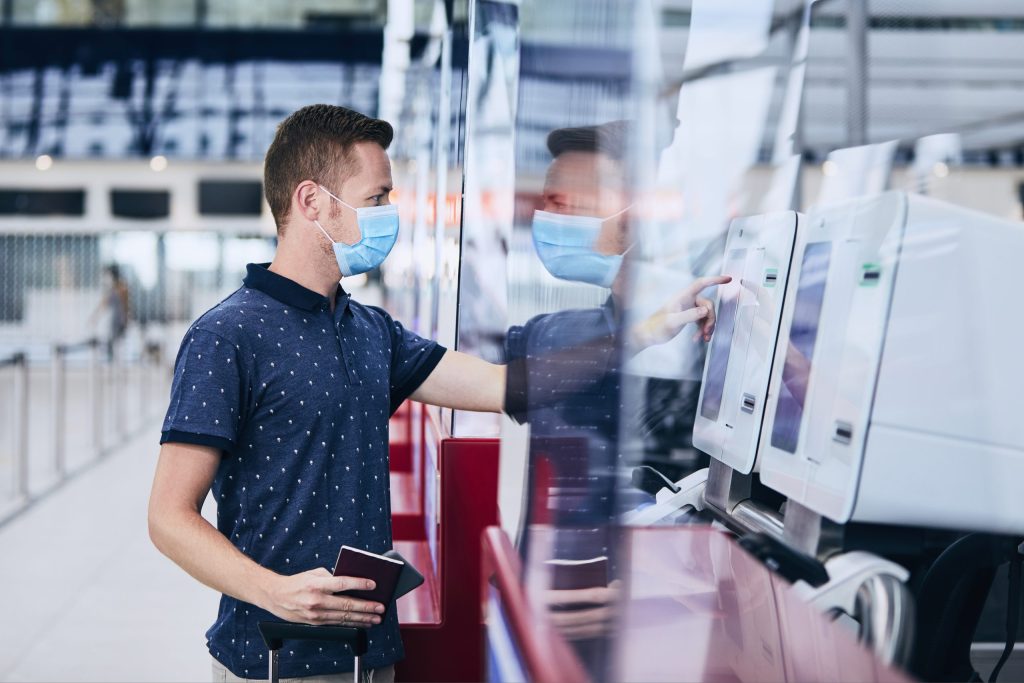
The airport operational environment in the post-pandemic world is set to become more complex, requiring even more collaboration amongst multiple stakeholders from airlines, airports, air traffic services and ground handlers. How can Indonesia’s airports better optimize their operations in the new normal?
The 3D virtual airport to improve the real
In view of these challenges, Isaac Benzaquen, Airport Industry Solutions Director, Dassault Systèmes, introduced the Virtual Twin Experience of the airport, a data-driven digital replica of an existing airport and all its assets and processes.
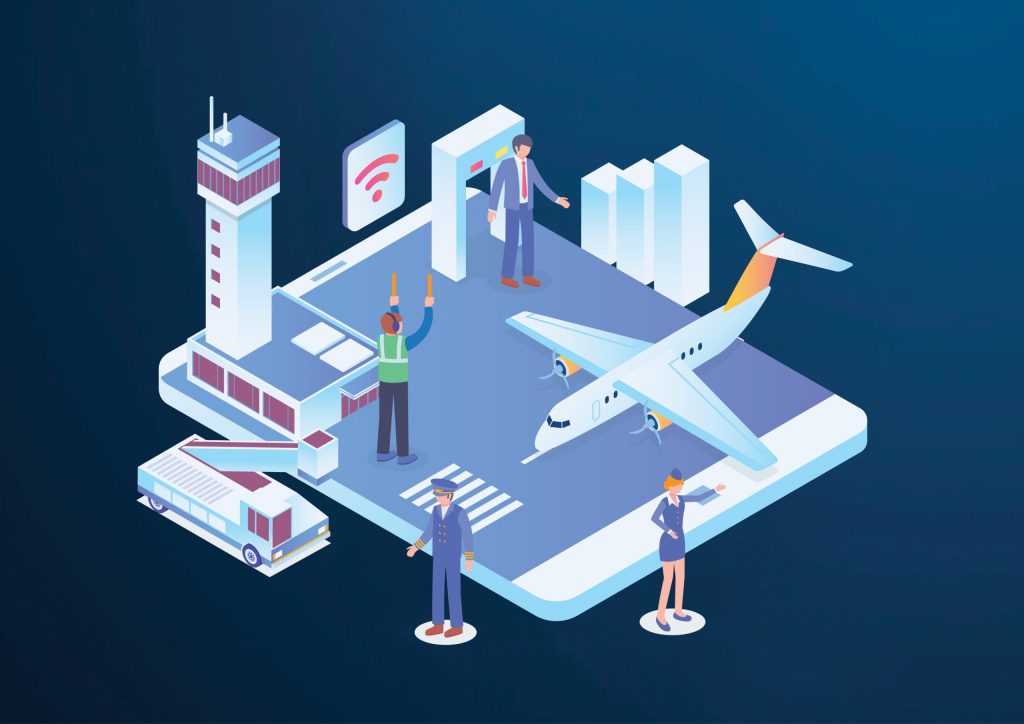
The Virtual Twin Experience provides a holistic 3D view of all the airport’s processes, with a dynamic passenger and cargo flow simulation model to help airport operators determine the optimal resource plan, measure the impact of their resource allocation decisions, and improve their agility to restructure airport operations to respond quickly to any crisis.
Through the Virtual Twin Experience of the airport, airport planners are empowered with much stronger situational awareness of both airside and the terminal operations. Timely and accurate information from multiple data feeds from every part of the airport are collated into one single source of truth. This helps airport planners implement quick incident management, such as fast evacuation of COVID-19 positive cases, quick mitigation of any equipment outage or security breaches.
The Virtual Twin Experience of the airport can also simulate the propagation and exposure of the virus to highlight potential cross-infection areas in the airport. This helps airport planners make quicker, better decisions on where to intensify cleaning and sanitation, redirecting passenger traffic away from affected areas, and communicating timely information to airport tenants.
For further details on how the Virtual Twin Experience can adapt airport operations to be “pandemic-ready”, you can read Isaac’s blog on “Innovating through Crisis: Airport Resiliency with the Virtual Twin”.
Why invest in digital transformation now?
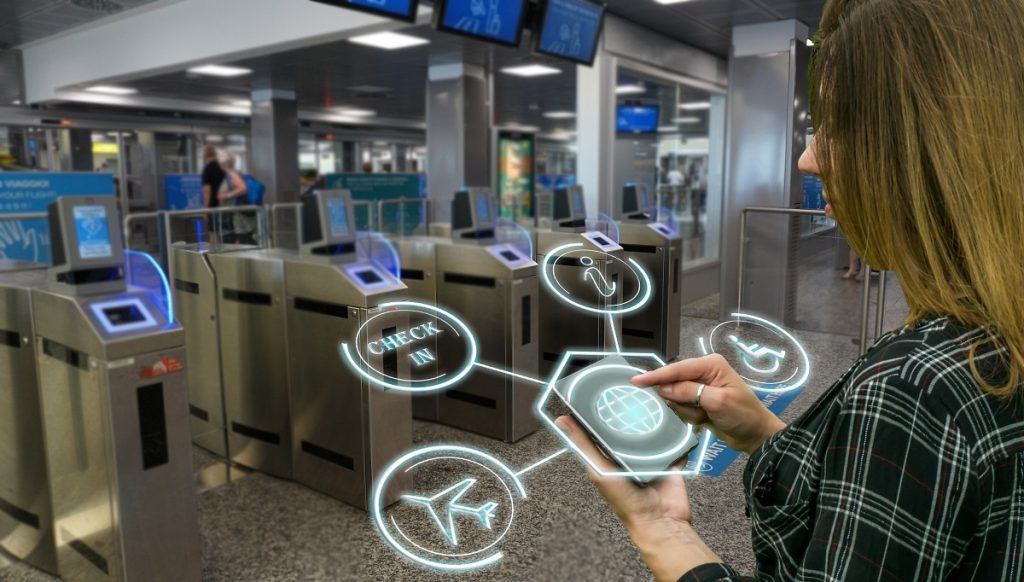
According to IDC research, spending on digital transformation technologies and services is forecast to grow 10.4% worldwide in 2020 to an eye-watering US$1.3 trillion, despite challenges from the COVID-19 pandemic. In every industry, businesses with robust digital and analytics capabilities have weathered through the crisis with greater resilience and are well positioned to emerge stronger when recovery takes pace.
By building a Virtual Twin Experience, airports will gain the agility to rapidly scale to match demand for new requirements and pivot operations to new sources of revenue.
Now is the perfect opportunity for Indonesia’s airports to invest in digital transformation to deliver a digitalized and fully sanitized end-to-end airport experience to gain consumers’ confidence in our bilateral “green lane” arrangements, and importantly, future-proof their operational models for the long-term.

